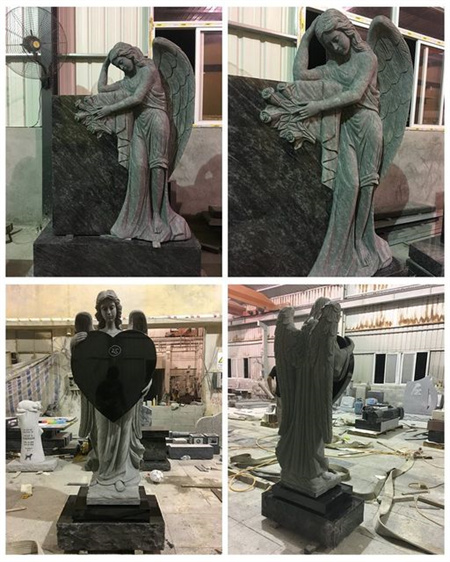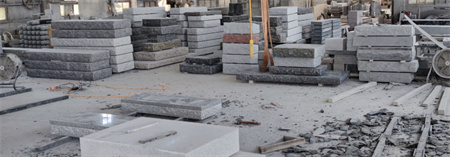How to Create Artistic Granite Memorials for Modern Cemeteries

How to Create Artistic Granite Memorials for Modern Cemeteries
Granite memorials have long been a cornerstone of honoring the departed, but as cemeteries evolve, so too does the way we remember and celebrate lives. In today’s world, more and more people are seeking memorials that blend traditional materials with contemporary designs. Granite, with its timeless elegance and durability, remains the material of choice, but the way it is shaped and personalized has changed. Crafting an artistic granite memorial for modern cemeteries involves more than simply engraving a name and date—it’s about creating a tribute that reflects the unique life it commemorates.
When beginning the process of designing a granite memorial, it’s important to think beyond the conventional. While traditional gravestones tend to be fairly uniform in their form and function, the modern approach embraces a greater diversity of shapes, textures, and finishes. The first step is to choose the right type of granite. There are various colors and patterns available, each with its own character. For instance, deep black granite offers a dramatic, sophisticated look, while gray granite might evoke a sense of peace and serenity. For those who want something unique, there are even multicolored granite options, with swirling veins that resemble natural landscapes or abstract art.

Artistic engravings are another crucial aspect of modern granite memorials. Engraving has evolved beyond simple text into intricate, personal representations of a person’s life. From detailed portraits of the deceased to engravings of meaningful symbols—such as a favorite flower, animal, or hobby—the possibilities are vast. Some families choose to include quotes, verses, or sayings that reflect the personality or beliefs of their loved one, turning the memorial into more than just a marker, but a true reflection of their legacy. Technology has greatly expanded the potential for these engravings, with laser etching allowing for incredibly detailed and intricate designs that were once impossible.
Another significant innovation in the creation of artistic granite memorials is the use of color. While traditional granite gravestones were typically one uniform color, today’s memorials may feature colored inlays or paint, which can enhance the overall design. Incorporating vibrant hues into the artwork or engraving can transform a standard stone into a masterpiece. These colors can be symbolic, representing the deceased’s favorite hues or cultural traditions, adding a deeply personal touch to the memorial.

For those looking to add even more artistic flair, combining granite with other materials can elevate the design. Bronze, copper, glass, and even wood can be integrated into the memorial, providing additional texture, color, and depth. For example, a granite base can support a beautifully crafted bronze sculpture, or a glass panel can be added with an etched image or inscription. The fusion of these materials enhances the visual impact of the memorial, creating a lasting tribute that stands out in a modern cemetery.
Finally, the location and setting of the memorial should not be overlooked. Today’s cemeteries are designed with beauty and serenity in mind, with landscaped gardens, reflective pools, and winding pathways. The memorial should complement its surroundings, whether that means standing proudly as a bold statement piece or blending harmoniously with its natural environment. The memorial’s placement can also reflect the spirit of the individual, whether nestled among trees, overlooking a serene lake, or positioned at the heart of a family plot.
Creating an artistic granite memorial for a modern cemetery is not simply about choosing a stone and engraving a name—it’s about crafting a unique and meaningful tribute. From the choice of granite color and texture to the engraving of personal symbols, the design process is an opportunity to celebrate the individuality of a life. With endless possibilities for personalization and artistic expression, today’s granite memorials have the power to reflect the personality, values, and essence of those they honor, making them an eternal testament to the uniqueness of every individual.
